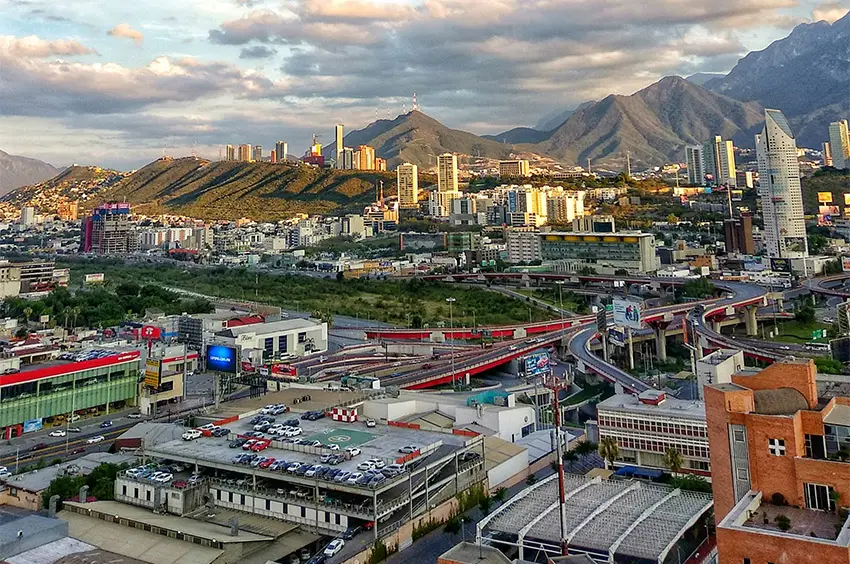Nearshoring accounts for 0.2% of Mexico’s GDP

Multinational companies that have relocated to Mexico amid the nearshoring trend only generate around 0.2% of the country’s gross domestic product (GDP), according to the World Bank’s top official in Mexico.
Mark Thomas, the World Bank’s country director for Mexico, Colombia and Venezuela, cited the figure in an interview with the El Economista newspaper during last week’s annual meetings of the World Bank and the International Monetary Fund in Washington D.C.
For her part, the Latin America head of S&P Global Ratings, María Consuelo Pérez, pointed out earlier this year that the “new” investment component of the total foreign direct investment ($36 billion) received by Mexico last year accounted for less than 0.3% of Mexico’s GDP.
According to the World Bank, Mexico’s GDP in 2023 was just under US $1.79 trillion.
Therefore, based on the estimate given by Thomas, the annual value of goods produced and services provided by companies that have recently relocated to Mexico is around $3.58 billion.
The World Bank official told El Economista that foreign companies’ impact on the economy is greater at the local level in places such as Monterrey, Nuevo León, as well as the northern border region and certain parts of the Bajío, a region that encompasses all or parts of several states including Querétaro, Guanajuato, Aguascalientes and Jalisco.

El Economista described those parts of the country as the “big winners” when it comes to the relocation of foreign companies. The new federal government is aiming to spread the benefits of foreign investment more evenly across Mexico via a plan to create 10 “specialized” industrial corridors spanning all 32 federal entities.
Thomas expressed his support for that plan.
To attract more foreign companies to Mexico, the World Bank official said that issues such as water availability, energy supply and the cost of land need to be addressed. Insecurity, government policies and constitutional reforms such as the recently enacted judicial reform are among the other concerns of current and potential investors in Mexico.
Although he outlined some deterrents to foreign investment, Thomas characterized Mexico as the best nearshoring destination in Latin America and the Caribbean.


In addition to its proximity to the United States, Mexico is considered an attractive place to invest by foreign companies because it is party to the USMCA free trade pact and has affordable labor costs, among other reasons.
Thomas said that Mexico’s true competitors for foreign investment are located in Asia, namely the countries of Vietnam, Taiwan and South Korea.
Alicia Bárcena, Mexico’s current environment minister and former foreign affairs minister, warned in late 2023 that Vietnam could position itself as a more attractive option than Mexico for companies that are seeking to relocate, especially from China.
Which companies have recently relocated to Mexico?
El Economista didn’t quote Thomas as referring to any specific foreign companies or time period when he spoke about nearshoring’s impact on Mexico’s GDP.
Mexico has been a nearshoring destination for decades, but in recent years has become an even more attractive destination for foreign investment for a range of reasons including the ongoing China-United States trade war, which began in 2018, and major disruptions to the global supply chain during the COVID pandemic.
Listed below are some of the foreign companies that have opened new plants or facilities in Mexico since 2019.
A number of major foreign companies, including automakers Tesla (U.S.) and BYD (China), tech company Google (U.S.), and Lingong Machinery Group (China), have announced significant investment plans for Mexico, but their proposed projects have not yet come to fruition.
Companies made investment announcements for Mexico totaling well over $100 billion last year, and more than $48 billion in the first seven months of 2024.
If the majority of the announced projects go ahead — of which there is no certainty — the contribution that foreign companies make to Mexico’s GDP could increase substantially in coming years.
President Claudia Sheinbaum, who is just short of completing one month in office, has sought to reassure companies that their current and future investments in Mexico are safe, and it appears that her government intends to be very proactive in seeking new investment in the country.
With reports from El Economista
Source: Mexico News Daily

